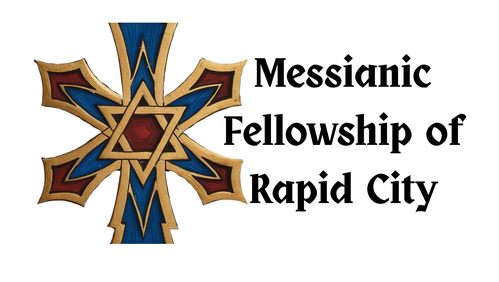“On the first day of the seventh month you are to have a sacred assembly. You are to do no laborious
work. It is for you a day for sounding the shofar.”
- Numbers 29:1 (TLV)
Rosh Hashanah occurs on the first and second days of Tishri. In Hebrew, Rosh Hashanah means, literally,
"head of the year" or "first of the year." Rosh Hashanah is commonly known as the Jewish New Year.
The purpose of this holy day is summed up in one word -- regathering, since the fall holidays call us to
regather to a pure faith in GOD. Rosh Hashanah has come to represent the day of repentance. It is the
day when the people of Israel take stock of their spiritual condition and make the necessary changes to
ensure that the upcoming new year will be pleasing to GOD.
The most noticeable custom is the shofar, the trumpet mentioned in the Biblical text. The shofar is
sounded in the synagogue with four different notes: tekia (blast), shevarim (broken notes), teruah
(alarm) and tekia gedolah (the great blast). These notes provide some spiritual lessons. Rabbis observed
that the shofar was used in the ancient world to hail a king. So, too, at Rosh HaShanah, all Israel is said
to appear before the King of Kings in anticipation of personal judgement. Also, often in the Bible, the
shofar was sounded to gather the troops together for battle (see Joshua 6). In this case, the shofar is our
"wake-up call," an alarm to call us to our appointed times.
"head of the year" or "first of the year." Rosh Hashanah is commonly known as the Jewish New Year.
The purpose of this holy day is summed up in one word -- regathering, since the fall holidays call us to
regather to a pure faith in GOD. Rosh Hashanah has come to represent the day of repentance. It is the
day when the people of Israel take stock of their spiritual condition and make the necessary changes to
ensure that the upcoming new year will be pleasing to GOD.
The most noticeable custom is the shofar, the trumpet mentioned in the Biblical text. The shofar is
sounded in the synagogue with four different notes: tekia (blast), shevarim (broken notes), teruah
(alarm) and tekia gedolah (the great blast). These notes provide some spiritual lessons. Rabbis observed
that the shofar was used in the ancient world to hail a king. So, too, at Rosh HaShanah, all Israel is said
to appear before the King of Kings in anticipation of personal judgement. Also, often in the Bible, the
shofar was sounded to gather the troops together for battle (see Joshua 6). In this case, the shofar is our
"wake-up call," an alarm to call us to our appointed times.
Biblical References
“Adonai spoke to Moses saying: ‘Speak to Bnei-Yisrael, saying: In the seventh month, on the first day of
the month, you are to have a Shabbat rest, a memorial of blowing (shofar), a holy convocation. You are
to do no regular work, and you are to present an offering made by fire to Adonai.’” Leviticus 23:23-25
TLV
“On the first day of the seventh month you are to have a sacred assembly. You are to do no laborious
work. It is for you a day for sounding the shofar.” Numbers 29:1 TLV
the month, you are to have a Shabbat rest, a memorial of blowing (shofar), a holy convocation. You are
to do no regular work, and you are to present an offering made by fire to Adonai.’” Leviticus 23:23-25
TLV
“On the first day of the seventh month you are to have a sacred assembly. You are to do no laborious
work. It is for you a day for sounding the shofar.” Numbers 29:1 TLV
